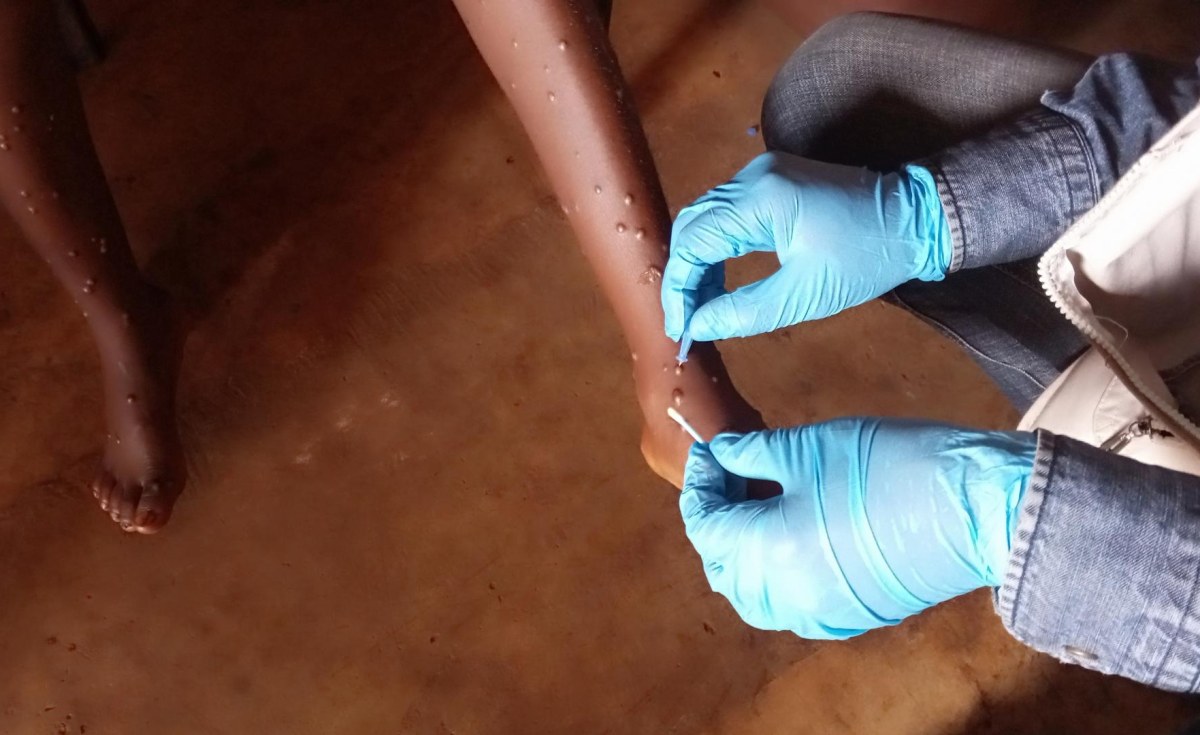Cop27 Africa Awards Prizes to East African Youth
Twenty African youth-led enterprises have won grant funding of up to $100,000 each in this year’s African Youth Adaptation Solutions Challenge (YouthADAPT) competition. In addition to the grant, each winner benefits from a 12-month accelerator program to help them grow their businesses, deepen their impact and create decent jobs.
The annual competition and awards program for youth-led enterprises—which is 50% women-led—is jointly organized by the Global Center on Adaptation, the African Development Bank and Climate Investment Funds (CIF). The program is part of the Africa Adaptation Acceleration Program YouthADAPT flagship pillar.
The program boosts sustainable job creation by supporting entrepreneurship and youth-led innovations in climate change adaptation and resilience across Africa. The competition invites young entrepreneurs and micro, small, and medium-sized enterprises in Africa to submit innovative solutions and business ideas that can drive climate change adaptation and resilience.
Speaking at the awards ceremony, African Development Bank Group President Dr. Akinwumi Adesina, said: “Africa’s needs cannot be ignored. The youth must be at the center of everything we are doing about climate change. No young person is too young to engage in climate dialogue. Our young people must be part of the solution. They are creative, dynamic, and engaging. They are futuristic and must be part of the solution for climate adaptation in Africa.
“We want the youth to speak for Africa and develop solutions for the continent. For this initiative last year, we supported 10 youth-owned and youth-led businesses in Africa with $1 million. This year, we are supporting 20 businesses with $2 million. So, we can expect that next year, we will double efforts to $4 million dollars. That’s the way it’s going to go for Africa.”
Adesina observed that 80% of the winners’ businesses were in agriculture. He said: “Agriculture is the future of Africa. As you know, that has been my gospel for many decades. The lowest bar is for Africa to feed itself. The high bar is for Africa to feed the world. Agriculture is a business. I encourage our young people to do three things: Create, Adapt and Prosper. CAP for short.”
Norway’s Minister of International Development Anne Beathe Tvinnereim commended the enthusiasm that the competition generated among the youth. She said it is important to tailor climate solutions that could be scaled up for the various communities.
“That is where the youth of Africa come in – you see the problem; you see the solutions and you have the energy and the resources to deliver and we want to help you with that,” She said. She commended the African Development Bank and the Global Adaptation Center for creating the initiative.
Professor Patrick Verkooijen, CEO of the Global Center on Adaptation spoke about the impact of the award on one of last year’s winners, Juveline Ngum Ngwa from Bamenda in Cameroon who was able to scale up her business, Bleglee Waste Management. As a result of last year’s grant, she was able to open a second waste sorting factory and has developed further software for her drones which identify garbage which is blocking drainage systems.
He remarked: “Adaptation is good business. But it needs to be at scale. And that is exactly what the Africa Adaptation Acceleration Program – the AAAP – does. The AAAP is mobilizing $25 billion over five years to scale up and accelerate adaptation climate adaptation actions across Africa. And one of its four pillars is the YouthADAPT flagship program.”
The winning enterprises of the Youth Adaptation Solutions Challenge 2022 come from all parts of the continent. Half are female led. They are scaling innovations in critical social and economic sectors affected by climate change. These include agriculture, waste management, water resources and sanitation, renewable energy and energy efficiency.
Many prize winners from East Africa
Whilst many prize winners were from East Africa sadly none included Tanzania. The 2022 winners of the African Youth Adaptation Solutions Challenge are:
- Flushh, Namibia
- Green Impact Technologies, Malawi
- AgriTech Analytics, Kenya
- Baramoda, Egypt
- Cassavita, Cameroon
- Ecobarter, Nigeria
- Farmer Lifeline Technologies, Kenya
- Grocircular Agro Services, Nigeria
- IRIBA Water Group Ltd, Rwanda
- Mpatsa Engineering Company Limited (formerly Sustainable Water Irrigation and Farming Technologies), Malawi
- Viva Organica, Botswana
- Voltx for Engineering & Industries, Egypt
- West African Feeds, Ghana
- Kisumeo Organics Limited, Kenya
- Agroexpert farming, Senegal
- Eurl Algerienne Des Industries Technologiques, Algeria
- Lono, Côte d’Ivoire
- Pazelgreen Technologies, Nigeria
- Akatale On Cloud, Uganda
- Multi-Tech Sustainable Solutions (MTTS), Cameroon
Program organizers received 3,000 applications for this year’s competition. The top 50 were shortlisted to pitch their innovations before a jury.
About the Global Center on Adaptation (GCA)
The Global Center on Adaptation (GCA) is an international organization that works as a solutions broker to accelerate action and support for climate adaptation. It does this across a broad spectrum from local to international, in partnership with the public and private sectors. Founded in 2018, GCA operates from its headquarters in the largest floating office in the world, located in Rotterdam, the Netherlands. GCA has a worldwide network of regional offices in Abidjan, Côte d’Ivoire, Dhaka, Bangladesh and Beijing, China.
More information is available at www.gca.org
About the African Development Bank
The overarching objective of the African Development Bank Group is to spur sustainable economic development and social progress in its regional member countries, thus contributing to poverty reduction. The Bank Group achieves this objective by mobilizing and allocating resources for investment in regional member countries and providing policy advice and technical assistance to support development efforts. The African Development Bank allocates 67% of its climate financing funding to adaptation. The bank is looking to mobilize $25 billion that will go toward adaptation in addition to its effort to raise up to $13 billion for its African Development Fund, the bank’s concessional window for climate action during its latest replenishment phase.
Learn more: https://www.afdb.org/
About the Climate Investment Funds (CIF)
CIF is one of the world’s largest and most ambitious multilateral climate finance mechanisms for developing countries seeking to shift to low carbon and climate resilient development and accelerate climate action. Its launch in 2008 emerged from recognition by world leaders that climate change and development are inextricably intertwined, and that climate-smart investment is needed at scale to deliver on the opportunities for green growth identified in the UN’s Sustainable Development Goals (SDGs).
Learn more: https://www.climateinvestmentfunds.org/.
Source: afdb.org
Share this news
This Year’s Most Read News Stories

Air Tanzania Banned From EU Airspace Due to Safety Concerns
Several airports have since locked Air Tanzania, dealing a severe blow to the Tanzanian national carrier that must now work overtime to regain its certification or go the wet lease way
The European Commission has announced the inclusion of Air Tanzania on the EU Air Safety List, effectively banning the airline from operating in European airspace.
The decision, made public on December 16, 2024, is based on safety concerns identified by the European Union Aviation Safety Agency (EASA), which also led to the denial of Air Tanzania’s application for a Third Country Operator (TCO) authorisation.
The Commission did not go into the specifics of the safety infringement but industry experts suggest it is possible that the airline could have flown its Airbus A220 well past its scheduled major checks, thus violating the airworthiness directives.
“The decision to include Air Tanzania in the EU Air Safety List underscores our unwavering commitment to ensuring the highest safety standards for passengers in Europe and worldwide,” said Apostolos Tzitzikostas, EU Commissioner for Sustainable Transport and Tourism.
“We strongly urge Air Tanzania to take swift and decisive action to address these safety issues. I have offered the Commission’s assistance to the Tanzanian authorities in enhancing Air Tanzania’s safety performance and achieving full compliance with international aviation standards.”
Air Tanzania has a mixed fleet of modern aircraft types including Boeing 787s, 737 Max jets, and Airbus A220s.
It has been flying the B787 Dreamliner to European destinations like Frankfurt in Germany and Athens in Greece and was looking to add London to its growing list with the A220.
But the ban not only scuppers the London dream but also has seen immediate ripple effect, with several airports – including regional like Kigali and continental – locking out Air Tanzania.
Tanzania operates KLM alongside the national carrier.
The European Commission said Air Tanzania may be permitted to exercise traffic rights by using wet-leased aircraft of an air carrier which is not subject to an operating ban, provided that the relevant safety standards are complied with.
A wet lease is where an airline pays to use an aircraft with a crew, fuel, and insurance all provided by the leasing company at a fee.
Two more to the list
The EU Air Safety List, maintained to ensure passenger safety, is updated periodically based on recommendations from the EU Air Safety Committee.
The latest revision, which followed a meeting of aviation safety experts in Brussels from November 19 to 21, 2024, now includes 129 airlines.
Of these, 100 are certified in 15 states where aviation oversight is deemed insufficient, and 29 are individual airlines with significant safety deficiencies.
Alongside Air Tanzania, other banned carriers include Air Zimbabwe (Zimbabwe), Avior Airlines (Venezuela), and Iran Aseman Airlines (Iran).
Commenting on the broader implications of the list, Tzitzikostas stated, “Our priority remains the safety of every traveler who relies on air transport. We urge all affected airlines to take these bans seriously and work collaboratively with international bodies to resolve the identified issues.”
In a positive development, Pakistan International Airlines (PIA) has been cleared to resume operations in the EU following a four-year suspension. The ban, which began in 2020, was lifted after substantial improvements in safety performance and oversight by PIA and the Pakistan Civil Aviation Authority (PCAA).
“Since the TCO Authorisation was suspended, PIA and PCAA have made remarkable progress in enhancing safety standards,” noted Tzitzikostas. “This demonstrates that safety issues can be resolved through determination and cooperation.”
Another Pakistani airline, Airblue Limited, has also received EASA’s TCO authorisation.
Decisions to include or exclude airlines from the EU Air Safety List are based on rigorous evaluations of international safety standards, particularly those established by the International Civil Aviation Organization (ICAO).

Sign up for free AllAfrica Newsletters
Get the latest in African news delivered straight to your inbox
The process involves thorough review and consultation among EU Member State aviation safety experts, with oversight from the European Commission and support from EASA.
“Where an airline currently on the list believes it complies with the required safety standards, it can request a reassessment,” explained Tzitzikostas. “Our goal is not to penalize but to ensure safety compliance globally.”
Airlines listed on the EU Air Safety List face significant challenges to their international operations, as the bans highlight shortcomings in safety oversight by their home regulatory authorities.
For Air Tanzania, this inclusion signals an urgent need for reform within Tanzania’s aviation sector to address these deficiencies and align with global standards.
The path forward will require immediate and sustained efforts to rectify safety concerns and regain access to one of the world’s most critical aviation markets.
Source: allafrica.com

Africa: Rwanda Gets a Grip Of Marburg, But Mpox ‘Not Yet Under Control’

Monrovia — The Rwanda Minister of State responsible for Health, Dr. Yvan Butera, cautioned that while the country is beginning to see positive signals in its fight against the Marburg virus, the outbreak is “not yet over”. He, however, expressed hope that “we are headed in that direction”. The minister said the epidemiology trend, since the disease was first discovered in the country more than a month ago, is moving towards fewer cases.
Dr. Butera, who was giving updates during an online briefing yesterday, said in the past two weeks, only two deaths were recorded while 14 people recovered from the disease. He said Rwanda was expanding its testing capacity with 16,000 people already inoculated against the disease.
The priority right now, Butera said, is “rapid testing and detection”.
Marburg is a highly virulent disease transmitted through human-to-human contact or contact with an infected animal. The fatality rate of cases, which has varied over the period, is more than 50%, according to the World Health Organization. WHO said the highest number of new confirmed cases in Rwanda were reported in the first two weeks of the outbreak. There’s been a “sharp decline” in the last few weeks, with the country now tackling over 60 cases.
At Thursday’s briefing, a senior official of the Africa Centers for Disease Control, Dr. Ngashi Ngongo, said mpox – the other infectious disease outbreak that countries in the region are fighting – was been reported in 19 countries, with Mauritius being the latest country to confirm a case. He said although no new cases have been recorded in recent weeks in several countries where outbreaks occurred previously – including Cameroon, South Africa, Guinea, and Gabon – Uganda confirmed its first Mpox death. This, he said, is one of two fatalities reported outside Central Africa.
Dr. Ngashi revealed that there was an increase in cases in Liberia and Uganda. He said mpox cases were still on an upward trend.
“The situation is not yet under control.”
Source: allafrica.com

Zanzibar Airports Authority enforces Dnata monopoly
. Airlines that have not joined the Zanzibar Airports Authority’s (ZAA) preferred ground handler, Dnata, at the Abeid Amani Karume International Airport (AAKIA) face eviction from the Terminal Three building Dnata is the sole ground handler authorised to provide services for flights that operate at Terminal 3.Continue Reading











